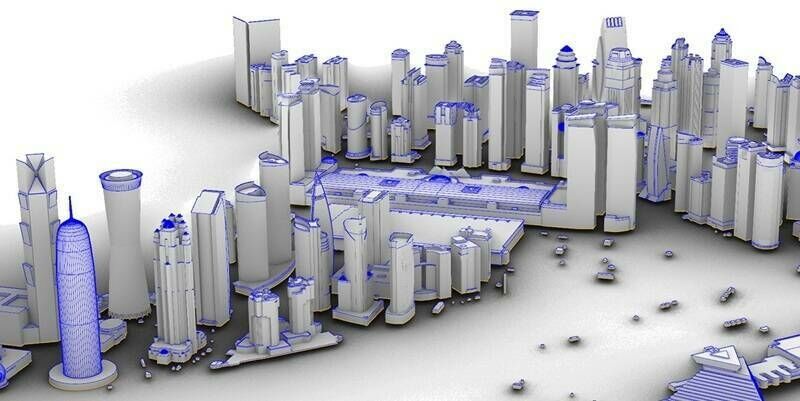Karlsruhe, Germany, 23.06.2017. Design the future and try it out today: In cooperation with the City of Karlsruhe, PTV Group has established a Mobility Lab, which was officially opened on 22 June 2017. Here, various traffic planning and model solutions will be linked to one another and to other solutions in order to try out new ideas and approaches as well as their effects on cities and regions everywhere in the world. From real-time solutions for traffic and transport planning to new, need-based mobility services (Mobility as a Service). A mobility laboratory that brings together international researchers, planners, decision-takers, operators and service providers.
With the Mobility Lab, the company would like to make a contribution to developing Karlsruhe into a smart city. Using the example of Karlsruhe, future-oriented solutions can also be revealed for other cities. Thus, the PTV Mobility Lab should bring together various developers and users of tools and models in order to link PTV software programs with one another and combine them with other products. In the process, the Mobility Lab offers a development and presentation environment that can also be used by other service providers and for other users. Therefore, it is also suitable for real-time applications from other cities where local public transport has also been incorporated into traffic management.
The heart of the Mobility Lab is the Karlsruhe traffic management system based on PTV Optima software. In this system, based on a down-to-the-hour transport model of the city of Karlsruhe, the PTV online detector data is provided with the traffic planning software. It comes from the city traffic control system from Siemens. In addition, data is provided by various commercial data suppliers such as Here, INRIX, MotionLogic and TomTom. Thanks to the linking of these models and data in the real-time traffic management system PTV Optima, there are a multitude of functionalities for transport planners.
Many and varied possibilities for deployment
Thus, for example, the traffic situation on the entire road network – even in places for which there is no measurement data – can be calculated and estimated (propagation). PTV Optima also allows planners to prepare short-term predictions of the traffic situation on the entire network in 15-minute intervals for up to 60 minutes in advance. Here, foreseeable incidents such as construction sites or events, as well as non-foreseeable incidents such as accidents can be taken into account to predict the traffic situation.
Another important aspect are action scenarios that can be developed in the Mobility Lab to react to the various incidents – by changing the service offerings, for example, or adjusting signal programs for traffic lights at intersections or coordinating them so that there is a “green wave.” The action scenarios also include the switching of variable message signs and the influencing of traffic demand through messages on the radio, Internet or in navigation systems. In addition, the effects of various action scenarios can be simulated online in order to select the best course of action. This last step, that is, the development, selection and implementation of measures in the city of Karlsruhe, is actually the responsibility of its specialist departments and institutions (Traffic Department in the Civil Engineering Office). Here, PTV offers its support and the Mobility Lab.
At the official opening of the Mobility Lab on 22 June, PTV not only showed its guests the traffic management system for Karlsruhe with its short-term predictions and scenario assessment. Applications from other cities and new services in the course of Mobility as a Service (MaaS) were also presented. Another highlight: a solution for integrated and interactive city planning created by combining PTV Visum and the Urban Strategy tool from the Dutch research institution TNO. Based on changes in the network or the area network, this solution allows noise and pollutant emissions from traffic to be calculated online, including their dispersal and their effects on the city's population.
Subscribe to our newsletter
Stay updated on the latest technology, innovation product arrivals and exciting offers to your inbox.
Newsletter

